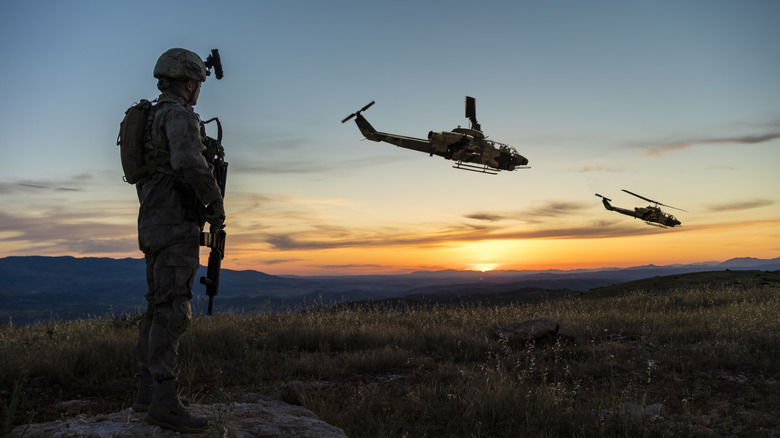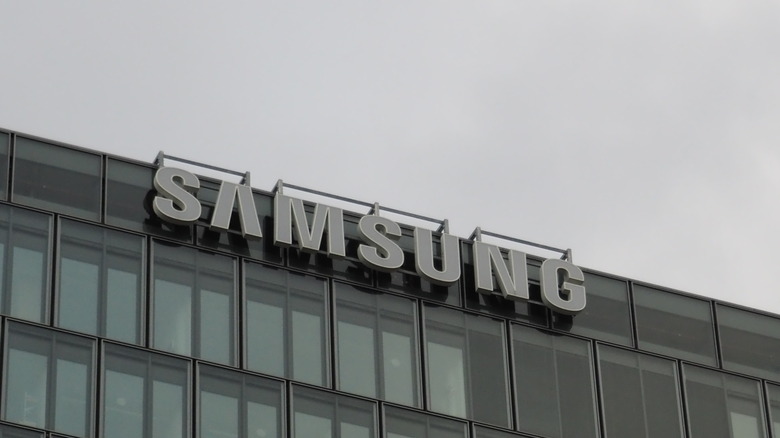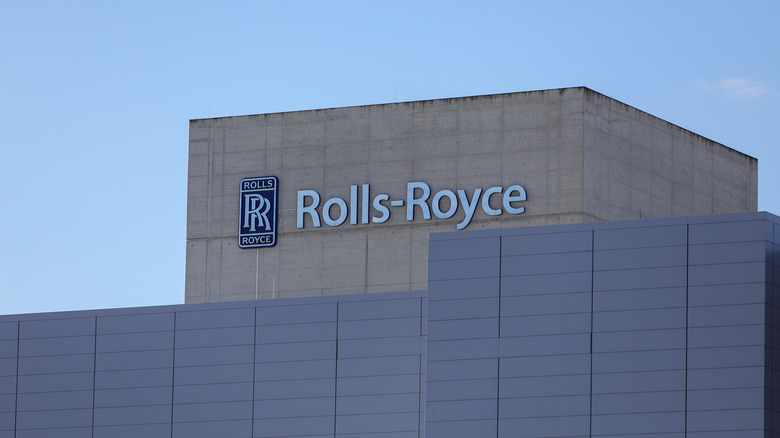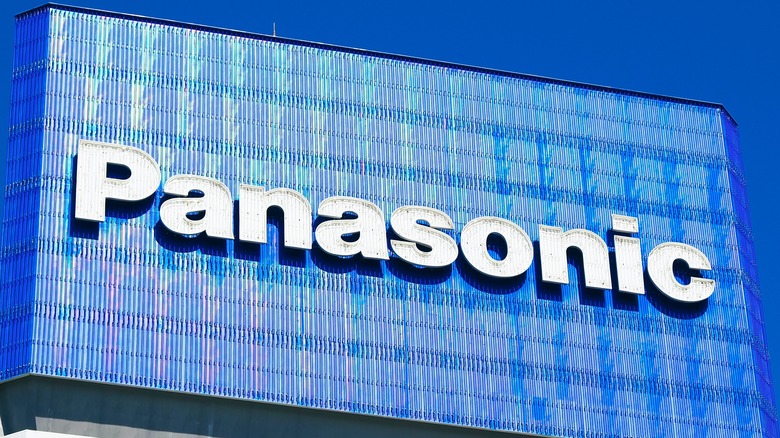You Probably Didn't Realize These Popular Companies Also Make Military Hardware
It's impossible to predict how geopolitical circumstances may shift in the coming years, but no matter what changes take place, defense and military spending worldwide is unlikely to subside. The United States defense market alone is estimated at 617.29 billion, while the global defense market size is expected to reach a value of $2.8 trillion by 2027.
With this in mind, it's easy to see why there isn't a company that would say "no" to a defense contract, regardless of the sector in which it operates. Having a stable and substantial source of revenue from the government is not just a means of ensuring growth but also a strategic imperative in today's corporate world.
While you're probably aware that Boeing doesn't develop and manufacture just commercial airplanes but also military aircraft and weapons systems, you might be surprised at how many popular companies that seemingly have nothing to do with the defense industry also make military hardware. Here are a few notable examples.
Samsung: From tanks to machine gun robots
There's a good chance you're reading this on a Samsung smartphone. Even if you aren't, you probably associate the brand with consumer electronics. But did you know that, up until a few years ago, the South Korean tech giant produced all sorts of military hardware, including weapons, howitzers, and tanks?
Through a subsidiary called Samsung Techwin (now Hanwha Vision, a subsidiary of Hanwha Group), the company developed and sold artillery systems, assault vehicles, helicopters, jet engines, and similar military hardware. In the early 1990s, for example, Samsung developed a 155 mm self-propelled howitzer called K9 Thunder. Mobile and powerful, the K9 is still used by the militaries of South Korea, Turkey, India, and Australia.
Samsung Techwin also made machine gun robots. The futuristic, if not dystopian, technology was developed in cooperation with Korea University and used in the Demilitarized Zone between North Korea and South Korea.
Rolls-Royce is among the largest defense contractors in Britain
The name Rolls-Royce is synonymous with luxury automobiles, but they are actually produced by Rolls-Royce Motor Cars, which is a subsidiary of BMW. Rolls-Royce Holdings, on the other hand, is one of the largest defense contractors in the United Kingdom.
The entirety of the U.K.'s Royal Navy's submarine fleet is powered by Rolls-Royce, which has over 16,000 military engines in service worldwide. The conglomerate has lucrative contracts with not just the British government but also several governments around the world. In March 2023, for example, Rolls-Royce secured a contract to provide reactors for Australia's nuclear-powered submarines.
In 2022, Rolls-Royce was awarded two contracts (valued at $1.8 billion) by the U.S. Department of Defense to service engines for U.S. Navy and Marine Corps aircraft. The company additionally collaborates with Singapore's Defense Science and Technology Agency (DSTA) in a partnership that involves optimizing engine maintenance through the use of cutting-edge AI technology.
Panasonic makes ruggedized military devices
Panasonic may be best known for its wide range of consumer electronics and home appliances, but it also develops technologies for military use. The Japanese company has contracts with the U.S. Air Force, Army, and Marine Corps, for which it primarily produces ruggedized devices. The specialized devices made by Panasonic are far more resistant to harsh environmental conditions than the laptops and smartphones we use every day.
Panasonic also collaborates with other companies in the defense sector to create unique solutions for American troops. Airborne Systems, which designs and manufactures parachutes for the U.S. Army, has used Panasonic's rugged TOUGHPAD tablets. These tablets can be operated mid-jump and withstand the harshest conditions, as they are sealed against dust and submersible in water. Likewise, Panasonic has a line of law enforcement and first responder solutions.
Jointly with a company called Cubic Defence, Panasonic has also developed defense training solutions for the British armed forces, utilizing TOUGHBOOK laptops to run virtual reality software that simulates combat.



